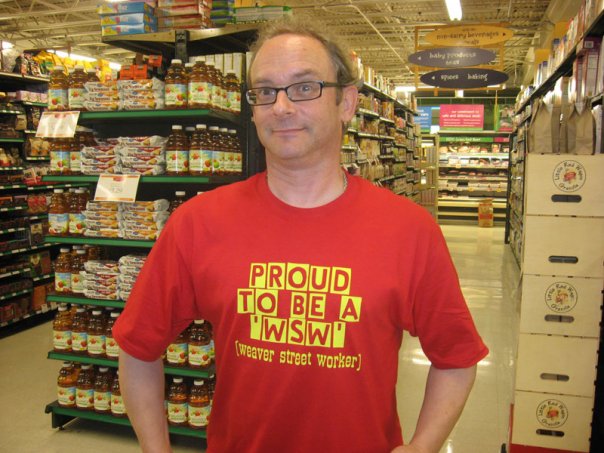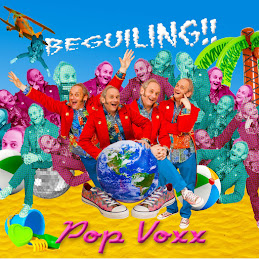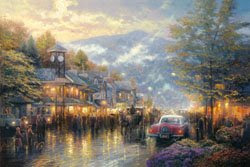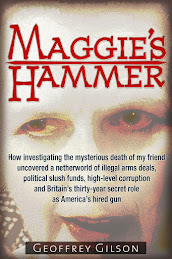Monday, December 29, 2014
Is Citizen Design of Policing 'Systemic Change'?
A lady I have been exchanging with on the concept of citizen design of policing referred to it as 'systemic change.' That is an expression which bothers me a bit. I responded as follows. I think it bears repeating:
"The expression 'systemic change' can sound scary. It hints of imposition.
The glory of citizen design of policing, as I see it, is that nothing is imposed. All the interested parties may be represented around the table. And all is consensually agreed.
Anger usually comes from fear. Very often, when we feel what we think is anger, it is not anger at what has happened, or even what is happening, it is fear about what is going to happen next.
The beauty of citizen design is that we all have equal input as to what will happen next. The only participants who need be scared are those who wish something they know their community will not accept.
People of good intent, with ideas of broad appeal and common sense, will be heard, whether police officer, citizen or elected official.
Anyone with misplaced attitude, ambition or agenda will simply be subsumed by well-meaning consensus.
It would be systemic primarily because it would be open to all in the 'system,' equally.
But there would be change only if a community willed it, and only as much as a community believed necessary.
The only people who need be scared are those who wish inequity maintained.
Now, a quick side issue. This is a process for finding solutions. Not for imposing punishment.
If you're looking for punishment in respect of what you regard as injustice, then you will be in the wrong place. Whether that injustice occurred yesterday, last week, last year or 400 years ago."
Meanwhile, as previously mentioned, I will be meeting with Carrboro Alderpeople, Damon Seils and Michelle Johnson this coming Saturday (January 3), at 10.30am, in the Looking Glass Cafe, to swap thoughts. If you're around and about, you are welcome to sit down with us. No part of this is an exclusive process. I hope to meet with Carrboro Alderperson Randee Haven-O'Donnell at a later time.
I have read much in the past few weeks, a lot of it emanating from folks in what I previously thought of as my sleepy, artsy current hometown of Carrboro, NC. I was wrong. Clearly, there are problems with policing, even in Carrboro. Which only makes the need for solution that much greater.
And again, I do not think any solution will work if it is imposed by any one group of protagonists, be it the police, elected officials, or some body of citizenry. This is an issue that involves all of us. And the process of finding a solution should be open to all of us.
That is what citizen design of policing allows. It creates the space for all who are interested to come together to design a solution together, consensually.
Hopping back to this coming Saturday, if you can't or don't wish to join in the chat at 10.30am, the NAACP are hosting a Q&A with Chief Blue (Chapel Hill PD) and Chief Horton (Carrboro PD) at noon, this coming Saturday, at the Rodgers Road Community Center.
Wednesday, December 24, 2014
Policing - A Balanced Approach
On this day before Christmas, much is being written, locally and nationally, about policing. As always, I write not to raise the tension, but in a continuing attempt to find resolution.
Locally, a popular progressive political forum has posted a piece by a respected local progressive activist about what she describes as the potential racial inequality in policing approach in my hometown of ten years, Carrboro, NC.
I’m not stupid. I’m not unaware. I’ve heard stories, too. Witnessed some things. But her account stands out, at least for me, for several reasons.
If what I would describe, respectfully and lovingly, as a rather sleepy little artsy backwater can generate these sorts of feelings, then it is past time to take action.
Resolution is going to require self-control, responsibility, balance and genuine engagement – by everyone.
I read reports of a song being composed for a police officer’s retirement party in Los Angeles, a song that is disgustingly racist and offensive in nature. That does not help. If the police want respect, they must act respectfully.
I read reports of a new shooting near Ferguson. As always, no-one yet knows the details. All is second-hand. But, there are reports of a handgun. And further reports of rock-throwing following the alleged incident.
I am not happy with the state of policing in our country. I am not happy for the communities which feel under siege from police. I am not happy for police, who feel under siege from their communities.
But, I am one who believes we need some form of law enforcement. And until such time as we have allowed communities to design or re-design their own policing approach, the police as we have them are what we have.
It is not respectful to draw a handgun on the police. Nor to throw rocks at them. Nor to scream at them – in the case of the incident reported in one of my local newspapers, and referred to in the local progressive political forum. It does nothing to help resolution. If we want the police to respect us, then we have to respect the police, too.
And, once again, I come back to resolution. I believe in localism. Communities know best what is right for them. Not remote bureaucracies in Washington or state capitals. Nor self-appointed moderators, who inevitably feel they always know best for us. So, I can only talk immediately about my own hometown, Carrboro, and the advocacy I am pursuing to explore the notion of citizen design of policing approach.
Which brings me to the piece posted in the local progressive political blog. It appears to offer progress. But actually, it is merely a regurgitation of points offered previously. Which I regarded as inadequate at the time, since they were a classic example of someone in authority assuming they know what is best for other people.
The people who know best are those people. It is why I am advocating citizen design of policing. Not police design. Not council staff design. Not elected official design.
It is why I think a crucial first step (and this can be reproduced across the nation) is the formation, by the local police funding agency’s elected officials, of an open citizen’s task force, comprising citizens, elected officials and police, with a remit thoroughly to canvass concerns, explore potential resolution, and make recommendations.
I am achieving some success with this notion. As previously reported, three of the seven members of the Carrboro Board of Aldermen (the funding agency for the Carrboro Police Force) have indicated that they wish to meet and compare notes with me in the New Year. It’s a start.
The goal should be a structure and process where citizens can design, consensually with elected officials and police, a policing approach which is acceptable to the community. So that all parties may feel able to co-exist in a more harmonious situation, where there is respect between all of the parties for each other’s rights, and support for the task we, as a society, ask some to perform in order to maintain law and order.
Communities, elected officials, citizens and police all deserve respect. All need respect, if society is to work.
That respect does not come from pulling hand guns on police. From throwing rocks at them. From screaming at them. It does not come from shooting twelve year olds dead. From breaking down peoples’ front doors to serve a warrant. From composing racist songs.
The answer is dialogue. The answer is to sit down, without preconception, but with respect. And talk until solutions are found. The answer, frankly, is to provide the space to allow citizens to find the solutions for themselves.
That is the best role that elected officials from funding agencies can perform. Not to come up with imposed solutions themselves. To be honest, the time for elected officials, on their own, to step in and offer programs and policies is long past. They remained quiet for way too long.
No. The best service those elected officials can provide now is all of the support possible and necessary to promote dialogue that allows citizens directly to design their community’s policing approach.
Some of you have asked me to let you know when you can do something, what and how. The when is now. The how is to offer your thoughts, right away, on what you think needs to be done to improve policing in your community (about all of your concerns, not just racial inequality), what you think about the notion of citizens designing their own policing approach, and what you think about a preliminary step of elected officials from police funding agencies setting up citizen’s task forces.
You can do that best (if you live in Orange County) by way of commentary on OrangePolitics, which is read by most of our local elected officials. Or on my Facebook Page, where I have tagged a messload of local elected officials. Or on this blog. Do it. Today. There is no more time to lose.
Friday, December 19, 2014
Wednesday, December 10, 2014
Jeremy Thorpe, CIA Torture and UK Child Abuse
The game of British politics, empire and the attendant gravy, used to be the domain solely of British gentlemen. Think ‘Pirates of the Caribbean,’ Governor Swann, Lord Beckett, Norrington and the East India Company.
By and large, the British gentlemen were second and third sons, who inherited nothing, and had to go out into the world and make their own way, their own name and their own fortune. Any way they could. With all roads leading back to the nascent City of London.
Then, in the nineteenth century, Great Britain got all democratic on itself, and offered ordinary citizens the vote (well, men first; women a good while later – no-one’s perfect).
This trend towards allowing ‘normal’ folk into the establishment, and its associated treasures, became embedded during the First and Second World Wars, when men of all class fought and died alongside each other in huge numbers, and in common cause.
Culminating in the Swinging Sixties. Think ‘Austin Powers,’ Michael Caine in ‘Alfie’ and the better ‘Italian Job.’ Groovy, working-class hippies getting stoned alongside toffs in their blazers.
But, at this time – that is, the Sixties and Seventies – although toffs no longer owned the establishment and its benefits alone, they still regarded themselves as a class apart.
They hung out in their exclusive clubs, from Parliament to the greystone manses in Pall Mall and St. James, commiserating, plotting. And there was much to plot about.
For these gentlemen were scared. Their politics were all pretty much restricted to a spectrum working its way rightwards from center-rightish to loony-tune-get-out-a-teles
What they were terrified of was what they saw as the rise of trade unionism and socialism, and its natural and imminent metamorphosis into Godless communism and dictatorship of the unwashed.
At which point, back up a tad. For sure, the British gent liked to think he was still solely in charge. And, to maintain the pretense, spent much of his time, evenings especially, gathering in various, restricted gentlemen’s circles in the posher parts of London, primarily Mayfair.
Some of the circles were quite benign. Gaming clubs. Bridge, poker. My mate, Hugh Simmonds, the subject of my book, played bridge with the likes of senior Tories such as Iain Macleod, in a gaming club in Curzon Street.
Mind you, he also spent not a little time hanging out at another gentleman’s club, known as MI5 (domestic British Intelligence), which, at that time, also had its HQ in or around Curzon Street.
A well-known card player in gentlemen’s circles, one Lord Lucan, disappeared, never to be found, in 1974, after allegedly murdering his nanny. The belief is that one or other of his gentlemen’s circles helped to spirit him away.
Benign, or not so benign, in the Sixties and Seventies, the establishment in London was awash with interconnecting gentlemen’s circles, all of whom felt themselves immune to the encroachment of ordinary citizens and the rule of law.
Card-playing circles, gentlemen’s clubs, networks for homosexuality (then, still illegal) and child abuse. No-one is suggesting that Jeremy Thorpe, former Leader of the British Liberal Party, who was accused in the mid-Seventies of attempting to murder his alleged gay lover, was connected with child abuse. But all of these gentlemen’s circles interconnected. And Jeremy was every inch the gentlemen.
Lord Lucan spirited away. Jeremy Thorpe involved in a plot to save his political career. Secret parties in various parts of London, for male members of the establishment, to engage in child molestation. And most of these circles overlapping with the most secretive gentleman’s circle of all. No, not Masons. Although, those too. Nope. British Intelligence.
When gents no longer controlled the overt levers of power, they sought solace in covert. For many a year, MI5 and MI6, and all manner of other initials and numbers, were the almost exclusive preserve of gentlemen. Who felt no allegiance other than to their own concept of what the nation and empire should be.
So it was that, in the Sixties, and moving into the Seventies, when the gentlemen of the London clubs and circles felt themselves threatened by the advance of socialism, the open socialism of Labour Prime Minister Harold Wilson, and the pinkish Toryism of Conservative Prime Minister Edward Heath, they took it upon themselves to begin plotting against their government.
Intelligence officers mixed with City gents, loony-tunes, defense contractors and the like, to make arrangements in the event of left-wing takeover. Even to pre-empt takeover. Sometimes in discussion groups, like the right-wing Monday Club. Or in more sinister paramilitary organizations.
Nothing came of the plotting. But networks were established. The primary duty of the Intelligence services to protect Queen and country, had been replaced by a more subjective goal of furthering the interest of the Intelligence services themselves. One became conflated inextricably with the other.
And so it was that these networks conspired to bring Margaret Thatcher to power. And she, in her gratitude, extended to the Intelligence services carte blanche (and a big hefty budget) to do her, and their, bidding.
One of the first things that Thatcher realized upon her accession was that the medicine she believed was necessary to restore the country’s public finances to health would almost completely devastate what was left of Britain’s manufacturing industry.
She needed something to replace it. She turned to arms manufacture. By the end of her time in office, Great Britain had become the world’s Number 2 arms exporter (it is still Number 5), and one in 5 of the British population was associated in some fashion with supporting its arms industry.
Britain’s embassies became international sales offices for British arms. And the Intelligence services were used to scout out potential buyers.
If you want to succeed in the long-term at arms sales, you can’t just deal with legitimate customers. You have to sell to the bad guys, too. And you can’t do that by the front door.
So, a whole backdoor arms sales operation was established. My mate was involved, among other tasks for British Intelligence and Margaret Thatcher, with setting up the money-laundering for this backdoor.
Another facet of the backdoor was a group (yes, another gentlemen’s circle!) called the ‘Savoy Mafia,’ so-called for its proclivity for holding meetings at the posh Savoy Hotel in London.
The ‘Savoy Mafia’ was a collection of Intelligence officers, arms dealers, senior Tory politicians, defense contractors, city gents, and civil servants, with direct lineage from the right-wing groupings of the Sixties and Seventies plotting against socialism, the primary tasks of which was secretly to arrange some of the more sensitive backdoor arms deals, and to plough illicit profits and commissions back to its members, including Margaret Thatcher’s husband and son.
It is the contention of my book that my mate was intimately involved in arranging the most secret of those deals: the one that benefited Margaret Thatcher directly.
Now, while all this was going on, Thatcher, in her feverish attempts to balance books and make money for Britain, got all chummy with the new Republican US President, Ronald Reagan.
Reagan had a problem. He wanted to do all manner of naughties around the world, kinda-sorta to bring down Soviet communism, but he couldn’t. Because of the need for congressional oversight. No problem, said Thatcher. We’ll do it for you. For a price.
And so, she hired out Britain’s military and Intelligence services to do America’s covert dirty work around the globe. Assassinations in the Lebanon. Arms deal with Iran. Killing Soviets in Afghanistan. You name it. British Intelligence or its military were there doing it.
We now know that this dirty work continued through the Blair Prime Ministership (Blair’s support for Bush’s invasion of Iraq; British complicity in CIA torture), and possibly into the Prime Ministership of David Cameron, who has made international arms sales the cornerstone of his government’s export policy, and maintains the closest relations with President Obama.
So what? Well, again, back-track a bit. In the Eighties, we have British intelligence (mostly still those pesky British gents, but as social mobility increased through the Nineties, Noughts and Teens, a few more oiks, here and there), we have British Intelligence openly involved in money-making ventures with arms sales and other activity on behalf of the US.
In other words, these gents circles. Which originally ran the empire. Then through circles in London, in the Sixties and Seventies, played games with each other, nasty sex games, harmless card games, and pointless plotting games. Morphed in the Eighties into a much more dangerous Intelligence-based activity, executing covert foreign policy, wielding influence in political circles domestically, and making obscene amounts of money to keep all the wheels greased.
They felt themselves beholden to no-one but themselves, and they would do anything to protect their power and the huge amounts of money they had made and were still making. An imperative which became even more ingrained when the whole secret power-wielding, private money-making enterprise took off tenfold as President Bush and the CIA declared their War on Terror, a War undertaken in the main by surrogate nations and private corporations, and funded by hundreds of billions of dollars.
My book sets out a scenario which suggests that Tony Blair’s Prime Ministership came to an abrupt end because he dared to impose his own man as head of MI6, against the wishes of the gents in Intelligence.
And these gents now feel threatened. Again. Allegations are coming to light about some of the uglier aspects of the games their gentlemen forebears played in the Sixties and Seventies. Allegations about parties for gents and their interest in child abuse.
There is already suggestion that British Intelligence tried to interfere with investigations into the latter. But why? What business should it have been of theirs?
Because they realize that investigation of one of those circles might lead, through interconnection, to revelation about all of them. Up to the present day and the enormous, corrupt influence they wield in the corridors of Westminster and Whitehall.
We’ll see if commercial publication next June of my book (under the title ‘Maggie’s Hammer’), which expands on all of the above, has any success in advancing revelation …
Thursday, December 4, 2014
Citizen Oversight of Policing
I am engaged elsewhere in a process of advocating for citizen oversight of policing in my current hometown of Carrboro, NC. That is not so much a reflection on the current policing in Carrboro. As it is a recognition that, in the current national US climate, I think it is time to consider more citizen oversight generally. And our small town (pop: 15,000), with a reputation for innovative governance, might be a good place to explore, consensually with the police, the various options for affording citizens the opportunity to ensure that the nature of the policing in our community has pro-active communal consent.
I accept that, notwithstanding NACOLE and the information set out in the PARC web-site, the concept of citizen oversight of police might be a tad confusing and uncomfortable to many people. It isn't to me. The land of my birth (Great Britain) has police forces which are run by civilian and elected Police and Crime Commissioners. But that is my cultural experience. I do not lose sight of the fact that it is not everyone's.
However, the justice and law enforcement traditions in the US and the UK come from the same historical source. One of the principles of which is that police are not supermen or superwomen. They are ordinary citizens. Who are tasked with upholding laws and maintaining order. With the admonition always that they do so with the consent of the community they police.
In my mind, this creates a direct link between police and each individual member of the community. Now. Let's be realistic. That does not mean that, in the middle of a police officer performing what he or she believes to be his or her duty, we get to turn around and say, er, excuse me, I do not consent, back off. Get real. But it does mean, and especially in the current national climate, should mean that we get to say to those we elect to govern our community, hey, where do I get to go to talk to my police, and help to set the rules by which our police do their policing?
I will be honest. As generous and as friendly as my own local representatives of community governance are being to my entreaties about exploring such citizen oversight of police in my community, I'm not sure they grasp this latter concept as firmly as do I.
I want the assurance of consensual policing to be pro-active, not reactive. And to be as intimate as is possible. If oversight is merely offering comment after the fact, we are always one step (elsewhere, perhaps one death) behind. No. I want personally to be able to be somewhere, facing my police and those we elect to fund them, so that I may join with others in my community to tell our police how we wish them to perform their policing of our community - before they set out to do the policing. And then, to be able to return, to ensure compliance.
It is not the right of a funding agency to deny me that intimacy. This is my relationship with my police. Unless the funding agency wants blindly to accept full responsibility for the manner in which I am policed, well or badly, then their job is to set up the arrangements which allow me to be a part of citizen oversight of my police. Period.
Now. That is where I am coming from. And just to be fair, since I have been totally open with all parties concerned about the remainder of my views in this regard, I will be letting those with whom I am engaging know about these views, too.
And to be honest, I am not sure that the various bodies interested in some concept of citizen oversight go as far as I do. The entities that have been established seem to restrict themselves to reactive review of complaints against the police. I am not looking for a complaints service, or an advisory board. I am looking for assured consensual policing by having citizens directly determine the nature of the policing approach in our community.
Subscribe to:
Posts (Atom)


























So, I made my pitch for citizen design of policing in Carrboro, NC - my home town these past 10 years - on WCHL 's "The Commentators," on Wednesday, December 17. I don't expect much progress over the holidays. But it never hurts to stoke the fire a bit.
In the meantime, some movement is evident already. Three Carrboro Alderpeople (Damon Seils, Michelle Johnson and Randee Haven-O'Donnell) have already been in touch, saying they'd like to compare notes after the Christmas break.
None of this is to say progress is going to be made behind closed doors. That is precisely what I do not want. I want the dialogue about policing in Carrboro (a dialogue I hope will become a template for communities with more pressing policing problems than Carrboro), I want that dialogue to be open, transparent and driven by citizens.
I have already told the Carrboro Alderpeople who have been in touch that I will be quite openly publishing notes of all conversations and communications we have. But these conversations do offer an opportunity to share thoughts, and see if there is common ground, so that maybe efforts can be in tandem.
Side point. Worth making again. The goal is for citizens, elected officials, police, communities to design dialogue, structure and processes, consensually, which will allow communities to have a policing approach with which they are comfortable.
But there is another side to it. And it becomes most evident when I read a recent article about the police reaction in Durham to the protests there.
The lose-lose-lose-lose situation is when we have a community that feels it is not being protected, protesters who feel they cannot express themselves safely, elected officials wringing their hands uselessly and police feeling they are being left hanging out to dry, because no-one is giving them clear guidance.
The win-win-win-win situation is where all in a community - citizens, police, protesters, whoever - are given the opportunity to be involved in designing an agreed policing approach, everyone knows exactly what is and what is not acceptable, police have clear rules of engagement, and if and when they follow them, they are fully supported by all in the community.
That is the goal of my push for citizen oversight of police. It creates an environment where everyone is clear and supported. And those who wish to make trouble know exactly what will happen when they do - and it will happen with the support of the community in which they seek to make trouble. No-one is left hanging out to dry.
I will continue with the updates, and look forward to input from the rest of the community as the opportunities finally become available. I really can't see any political objection anywhere to the notion of a community designing its own policing approach. Whether you are Tea Party or anarchist ...